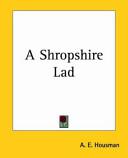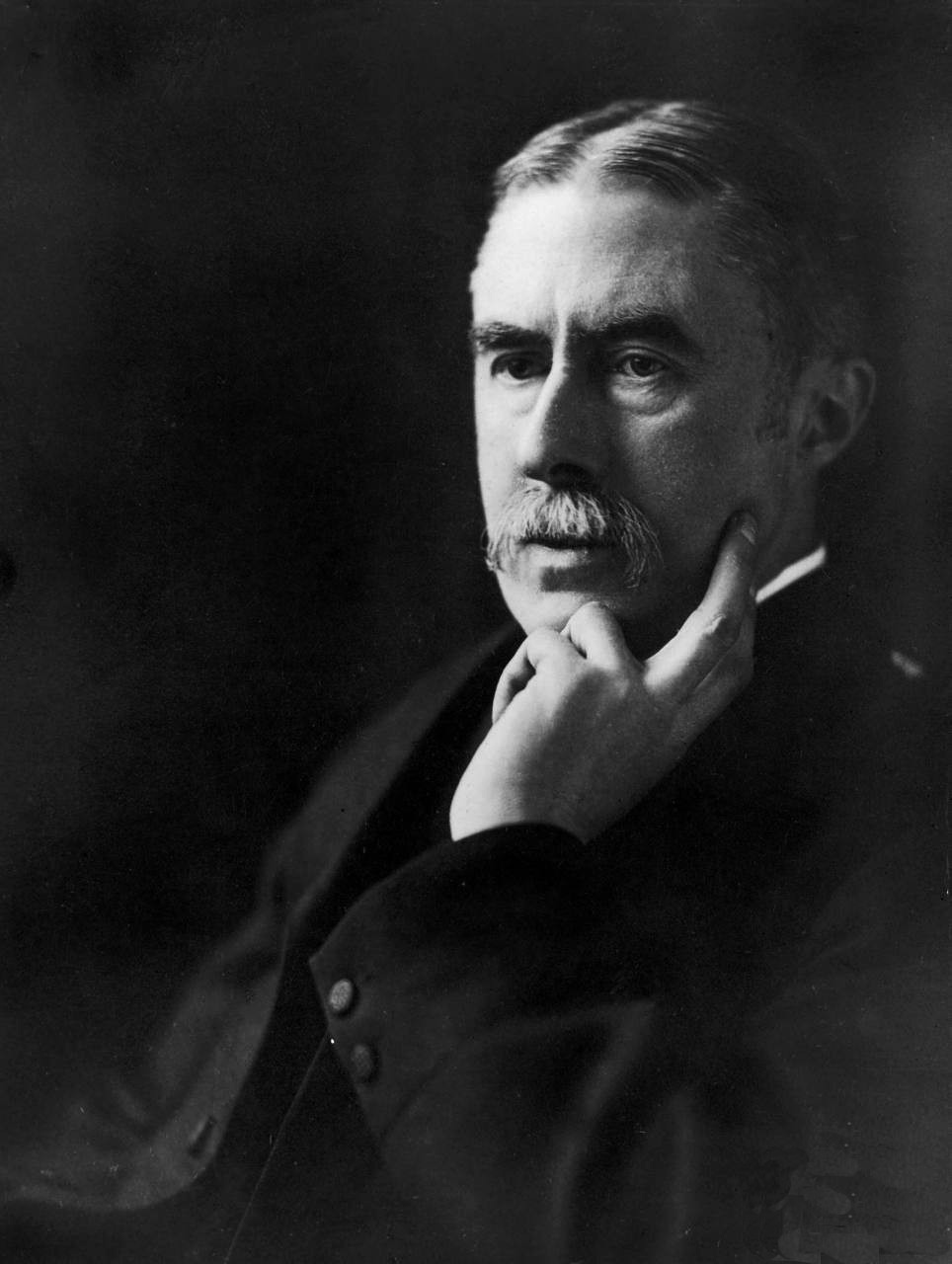Works

A Shropshire Lad
A.E. HousmanLast Poems
A.E. HousmanFamous A.E. Housman Quotes
A.E. Housman Quotes about heart
No. 40.
Source: A Shropshire Lad (1896)
No. 10, st. 2.
Last Poems http://www.gutenberg.org/dirs/etext05/8lspm10.txt (1922)
"Letter to Gilbert Murray" (April 23, 1900).
"Letter to Neilson Abeel" (October 4, 1935).
“His folly has not fellow
Beneath the blue of day
That gives to man or woman
His heart and soul away.”
No. 14, st. 3.
A Shropshire Lad (1896)
A.E. Housman Quotes about God
No. 12, l. 1-4.
Last Poems http://www.gutenberg.org/dirs/etext05/8lspm10.txt (1922)
"The Application of Thought to Textual Criticism", a lecture delivered on August 4, 1921
No. 12, l. 15-18.
Last Poems http://www.gutenberg.org/dirs/etext05/8lspm10.txt (1922)
No. 37 ("Epitaph on an Army of Mercenaries").
Last Poems http://www.gutenberg.org/dirs/etext05/8lspm10.txt (1922)
A.E. Housman: Trending quotes
"Fragment of a Greek Tragedy". This parody was first written in 1883, but quoted here from a revised version of 1927.
A.E. Housman Quotes
No. 62, st. 3.
Source: A Shropshire Lad (1896)
No. 19, st. 2.
Source: More Poems http://www.kalliope.org/vaerktoc.pl?vid=housman/1936 (1936)
No. 23, st. 4.
A Shropshire Lad (1896)
“The rainy Pleiads wester,
Orion plunges prone,
The stroke of midnight ceases,
And I lie down alone.”
No. 11, st. 1.
More Poems http://www.kalliope.org/vaerktoc.pl?vid=housman/1936 (1936)
No. 9, st. 1.
Last Poems http://www.gutenberg.org/dirs/etext05/8lspm10.txt (1922)
“Hope lies to mortals
And most believe her,
But man's deceiver
Was never mine.”
No. 6, st. 1.
More Poems http://www.kalliope.org/vaerktoc.pl?vid=housman/1936 (1936)
“Loveliest of trees, the cherry now
Is hung with bloom along the bough.”
No. 2, st. 1.
A Shropshire Lad (1896)
Saturae of Juvenal (Cambridge University Press, [1905] 1931) p. xi.
No. 4 ("Reveille"), st. 6.
A Shropshire Lad (1896)
No. 9, st. 7.
Last Poems http://www.gutenberg.org/dirs/etext05/8lspm10.txt (1922)
From a list of insults drafted by A E Housman, and posthumously published in Laurence Housman's A. E. H. (1937) pp. 89-90. The name was left blank in the original, but was intended to be filled in and used when a suitable subject should turn up.
No. 52, st. 1.
A Shropshire Lad (1896)
"The Application of Thought to Textual Criticism", a lecture delivered on August 4, 1921
No. 48, st. 1.
A Shropshire Lad (1896)
No. 24 ("Epithalamium"), st. 3.
Last Poems http://www.gutenberg.org/dirs/etext05/8lspm10.txt (1922)
“I find Cambridge an asylum, in every sense of the word.”
A remark made in conversation, according to Grant Richards Housman 1897-1936 (1942) p. 100.
Attributed
“And silence sounds no worse than cheers
After earth has stopped the ears.”
No. 19 ("To an Athlete Dying Young"), st. 4.
A Shropshire Lad (1896)
No. 21, st. 7.
A Shropshire Lad (1896)
No. 32.
A Shropshire Lad (1896)
No. 52, st. 4.
A Shropshire Lad (1896)
No. 48 ("Parta Quies"), st. 1.
More Poems http://www.kalliope.org/vaerktoc.pl?vid=housman/1936 (1936)
"The Application of Thought to Textual Criticism", a lecture delivered on August 4, 1921
No. 15 ("Eight O'Clock").
Last Poems http://www.gutenberg.org/dirs/etext05/8lspm10.txt (1922)
No. 2, st. 2-3.
A Shropshire Lad (1896)
No. 39, st. 3.
A Shropshire Lad (1896)
“Most men are rather stupid, and most of those who are not stupid are, consequently, rather vain.”
"The Application of Thought to Textual Criticism", a lecture delivered on August 4, 1921
No. 12, st. 4.
A Shropshire Lad (1896)
No. 47 ("For My Funeral"), st. 3.
More Poems http://www.kalliope.org/vaerktoc.pl?vid=housman/1936 (1936)
"The Application of Thought to Textual Criticism", a lecture delivered on August 4, 1921
"The Application of Thought to Textual Criticism", a lecture delivered on August 4, 1921
No. 30, st. 4.
A Shropshire Lad (1896)
No. 40, st. 1.
Last Poems http://www.gutenberg.org/dirs/etext05/8lspm10.txt (1922)
Referring to Luke 17:33, 'Whosoever will save his life shall lose it, and whosoever will lose his life shall find it' (the wording used by Housman).
No. 60.
A Shropshire Lad (1896)
"Introductory Lecture" delivered on October 3, 1892 at University College, London.
No. 36.
More Poems http://www.kalliope.org/vaerktoc.pl?vid=housman/1936 (1936)
No. 13, st. 1.
A Shropshire Lad (1896)
No. 19 ("To an Athlete Dying Young"), st. 2.
A Shropshire Lad (1896)
The Name and Nature of Poetry
Foreword.
More Poems http://www.kalliope.org/vaerktoc.pl?vid=housman/1936 (1936)
According to Frederic Prokosch, in his Voices: A Memoir (1983), this was once said to him by Housman.
Attributed
No. 9, st. 3.
Last Poems http://www.gutenberg.org/dirs/etext05/8lspm10.txt (1922)
Introduction to Astronomicon of Manilius, Lib I. (Cambridge University Press, [1903] 1937) p. xliii.
The Name and Nature of Poetry
"The Application of Thought to Textual Criticism", a lecture delivered on August 4, 1921
No. 31, st. 4.
A Shropshire Lad (1896)
The old unscientific days are everlasting; they are here and now; they are renewed perennially by the ear which takes formulas in, and the tongue which gives them out again, and the mind which meanwhile is empty of reflexion and stuffed with self-complacency.
"The Application of Thought to Textual Criticism", a lecture delivered on August 4, 1921
